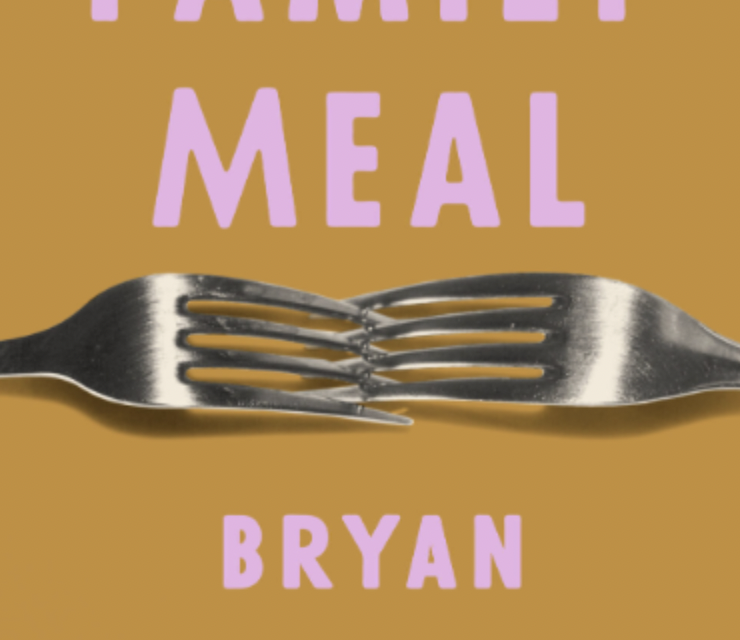Sienna Pendleton, Staff Writer
In the tear jerking and heartwarming novel Family Meal, Bryan Washington creates a story on grief, love, found family, and the importance of food in his most recent veracious novel.
The novel follows three queer men Cam, his recently deceased partner Kai, and his childhood best friend TJ who are constantly intertwined throughout different coasts of North America, different states of life, and even after death.
Most of the novel follows Cam when he moves back to his hometown in Houston, Texas after Kai is killed in a police brutality incident back in Los Angeles where they built their life together that crumbled after his death. When Cam relocates he falls into self-destructive habits of taking drugs, meaningless hookups, and isolating himself from those who truly love him.
Cam reconnects with TJ when he walks into the bar that Cam works at and the boys are thrown back into each other’s lives while struggling to reconcile their friendship and the found family they’d once developed together.
Even after Kai’s death, he is still evident in Cam’s life, both through the visions that Cam has of Kai, and the incredible impact that Kai had on him. As well as the way Kai viewed many things such as love, food, and physical intimacy. Cam often thinks of Kai’s words for comfort such as, “Love is a tangible thing. It is palpable. You can hold it in your hands. You can see it in the air. You can breathe it in and hold it and push that shit right back out your lungs. When it dissolves, you might not see it, but that won’t mean it wasn’t there. Because you were.”
This quote from Kai is actually a great example of the nature of Cam and TJ’s complicated relationship. Though the two aren’t on the best terms anymore and they constantly clash, it’s clear that they bump heads and fight so often because they still care about one another and are making an effort to fix what was broken.
Through heartfelt conversations and the fondness of sharing food, the love that once existed between the two begins to mend. This is a clear illustration of the fact that once love exists, it will always linger, no matter how long it hasn’t been nourished.
All of the characters go through some form of alienation even though they are always surrounded by each other, friends, or family. Through the chapters narrated by Kai, we learn the power of being able to find solace in those around us, specifically when he says, “My family taught me the difference between acceptance, allowance, and understanding. Also: just being. Sometimes they overlap. Usually, they don’t.”
We also get TJ’s point of view after a few months’ time skip where Cam has gone to rehab and therapy and the brighter sides of grief begin to show. It becomes evident that grief is a remnant of love and when Cam finally lets those who care about him into his world, he creates connections that are bigger than his grief and we see that love is also the only thing that can pull us out of it.
At the end of the novel Cam and Kai’s ghost have one last talk. Cam admits that he’s having trouble letting go of Kai because Kai has engraved himself so deeply into who he is, but that is also the exact reason why it’s important for Cam to keep living, because through Cam, Kai’s continues to live too. Through Kai and Cam’s final conversation we realize that the dead are never truly gone, maybe physically, but never mentally, because human connection and the love created by it exists forever. It’s important that we hold on to the dead, but it is important that we hold on to the living too. Grief is hard, but love and maybe even a family meal can make it a little bit easier, and Bryan Washington truly creates a beautiful and much needed story about the significance of each of these things and what it means to keep going and keep existing for those who love us.
Image Sourced from: goodreads (https://www.goodreads.com/book/show/123414019-family-meal)





